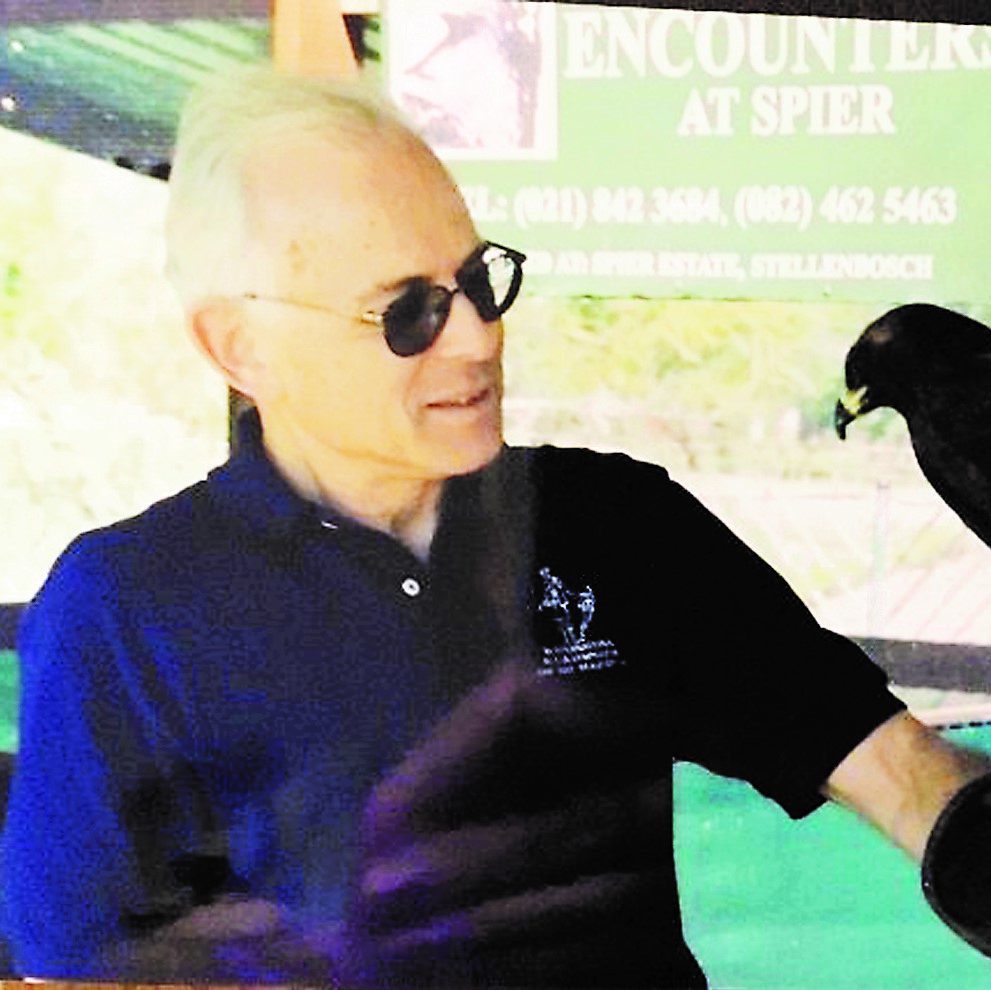
SA

Former lecturer has classic time as undergraduate
JORDAN MOSHE
The 77-year-old veteran academic and Durban resident was among those who graduated with a Bachelor of Arts (BA) undergraduate degree from the UKZN in a virtual ceremony last week. He has devoted the past four years to studying Latin, determined to continue his pursuit of knowledge in spite of being in retirement.
“I loved it from the start,” Avin told the SA Jewish Report. “I taught at what was then Natal University for almost 30 years, and served as dean of students in the Humanities faculty between 1996 and 1998.
“As a teacher and administrator, thousands of students passed through my hands. I always loved their company, and this was an opportunity to learn alongside them.”
Born in Cape Town to a traditional Jewish family, Avin matriculated from Herzlia High School in 1959, his father also serving as the school’s second headmaster. He attained his undergraduate degree at the University of Cape Town, and subsequently pursued his postgraduate degrees overseas.
Avin returned to South Africa in 1975, joining the English department at Natal University, with a speciality in 17th and 18th-century English literature.
When he retired in 2002 at the age of 60 (as per the university’s policy at the time), he maintained his passion for the pursuit of knowledge and learning. While he read extensively, travelled widely, and pursued many interests, he yearned to return to studying. In 2011, he enrolled for a master’s degree at the University of the Free State (UFS), where he completed a thesis on Holocaust literature, graduating in 2014.
Determined to continue, he enrolled at UKZN as an undergraduate student in 2016 for a BA at the age of 73, taking up a formidable subject even for literary scholars: the ancient classics.
“The literature of the 17th and 18th centuries throughout Europe was saturated with the influence of the classics,” he says. “It bears the legacy of ancient Greece and Rome.
“It irked me throughout my career that I could never range through those sources in their original languages. I felt such a sense of deficit. Studying them wasn’t possible while I worked, but I resolved to address the deficit when I retired. It was time.”
He took up ancient Greek and Latin, also choosing electives that he had never engaged with, including linguistics and comparative religion. After a year, he chose to drop Greek, and forged ahead with Latin as his major.
“These days, the study of classics is highly self-selective,” Avin says. “It’s a kind of study that will attract those who are highly motivated, diligent, and able. Such people are sadly few.”
Avin says his undergraduate experience was incredible. “I enjoyed the rare privilege of being taught by really good teachers in tiny classes with the luxury of individual attention, in the company of classmates who were superb and extraordinary,” he says.
“How many undergraduate students are so lucky? It was a gift. There I was, a white-haired old man surrounded by forbearing fellow students, old enough to be their grandfather, and they were willing to put up with me and my idiosyncrasies. It was a privilege.”
Although Avin initially feared his presence would intimidate other students, he found them unfazed by his presence. “In theory, I was intimated,” he says. “But once theory became practice and I was mingling amongst students, I enjoyed every moment. We respected each other, and I found them all congenial.
“Some of the African students routinely called me ‘Baba’ and ‘Nkulu’ (Zulu terms of respect for the elderly), and I found my place among them all.”
Over his four-year degree, one of Avin’s greatest challenges was sitting down to a time-sensitive exam after years of research and writing.
“It felt unusual to sit an exam after 50 years of being a research student,” he laughs. “I didn’t manage my time very well in my first year, and I was useless at budgeting time in exams. I paid for that. I managed in the end, though.”
While many have hailed his graduation as remarkable, Avin says his achievement isn’t notable in the least.
“It isn’t notable even though it may be newsworthy because of my age,” he says. “My whole working career has been in an academic setting, so my studies and graduation shouldn’t be remarkable. The fact that I am 77 is an extraneous fact. What I have done is pursue knowledge.”
The really notable performers are the young students with whom he graduated, he says.
“Many of them come to university with a deprived educational background, set shoulder to the wheel, and manage to resist the many temptations and distractions around them to pursue a degree. Those are the individuals who should be interviewed as they are the unsung heroes who deserve to be sung.”
Avin says Jews have always placed a high premium on the pursuit of learning. “The greatest insult you could level at a fellow Jew in Eastern Europe was to accuse him of being illiterate,” he says. “Study has been a Jewish tradition over the centuries.
“The Jewish notion of a learned person is talmid chacham. If you parse that, it means the disciple of a learned person, and the learning one accumulates is a credit to one’s teachers.
“I like that. I’m simply a disciple who owes his teachers so much.”





Mervyn Galansky
June 19, 2020 at 8:27 am
‘I had the honour and privilege of being part of Ittamar’s early years, when we studied together, and matriculated from the Herzlia High School in Cape Town together in 1959.
So proud of you, Ittamar! Congratulations on receiving yet another degree!
With respect and love,
Mervyn
‘
Phyllis Alperstein
June 29, 2020 at 12:45 pm
‘Congratulations Ittamar. This is so impressive. Seeds planted at Herzlia, K-Matric, have grown into a mighty oak. Kol Hakavod.
‘